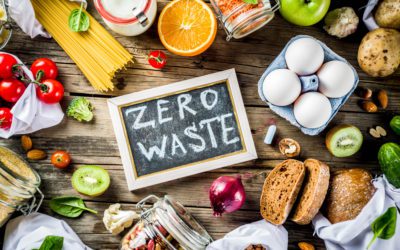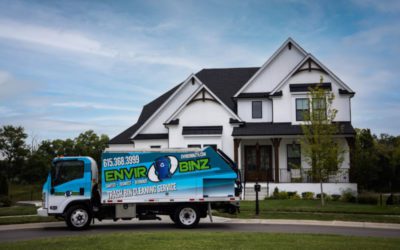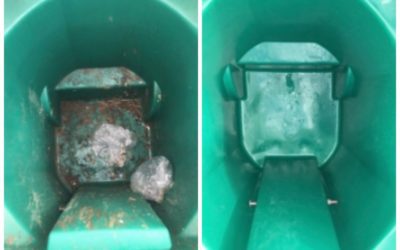All trash is created equal. Right? Not so much! Everything you throw away has a risk of leaching back into the environment, either through soil or water or by impacting the people between you and the landfill. You can think of all garbage as fitting into three categories:
- There’s regular trash.
- There’s the category of “you shouldn’t put that in the trash and here’s a better way to do it.”
- Then we have the category of “It’s actually illegal to throw that in the trash and here is how to properly dispose of it!”
Regular trash, you pretty much already know. But here are 11 surprising things you may not know actually fall into one of the other two categories. If you tossed these items out with the trash in the past, give yourself grace and aspire to do better in the future. After all, knowledge is power!
Chemical Waste
There are numerous household items that are perfectly safe to use. But when improperly disposed of, they can present a chemical danger and hazardous waste risk. These items can leach chemicals such as mercury, cadmium, and lead into the soil and water. Protect yourself and your loved ones by properly disposing of these items. A simple internet search can direct you to the nearest place that takes HHW (hazardous household waste) like batteries or old electronics.
- Old batteries (especially rechargeable ones)
- Fluorescent light bulbs
- Paint (Mixed with a drying agent, such as cat litter, paint may be disposed of in the regular trash.)
- Mercury Thermometers
- Electronics, such as laptops or cell phones
Risk of Injury
- Broken Glass
- Used Needles
- Medication
You clean up broken glass immediately to protect yourself and your loved ones from harm. But could you be putting others in harm’s way? Instead of throwing loose broken glass into a trash bag or garbage bin, place it in something like a box that’s then sealed with tape or several layers of newspaper to prevent it from cutting someone else. Use a sharps container to properly dispose of used medication needles. Search online for a nearby facility where you can return a sharps container.
As for old, unused or no longer needed medication, not only do you not want it seeping into your water supply (don’t flush it!), you also don’t want it falling into the hands of someone who may consume it. Many towns have safe places to dispose of unwanted medication. If you’re unable to find an appropriate place, the FDA recommends combining the medication with something inedible (dish soap, flour and water) and putting them in a sealed plastic bag (like a Ziploc bag) before discarding in the trash. This renders the medication unusable while still protecting the environment.
Flammable Hazards
Other items that shouldn’t be thrown away include things that can cause or catch fire. Some of these items can be disposed of at HHW sites, others recycled at specialty places like automotive repair shops.
- Lighter Fluid (It’s used to start fires… let’s not put it in the trash!)
- Motor Oil
- Matches (Douse in cold water and extinguish COMPLETELY before adding to the rubbish.)
Maintain Clean Bins
Now that you’re savvy on what not to throw away, contact Envirobinz Trash Bin Cleaning Services at 615-368-3999 or email info@envirobinz.net for easy and convenient garbage bin cleaning service. Keep your garbage bins clean and sanitized to prevent pests, bacteria and odor.



